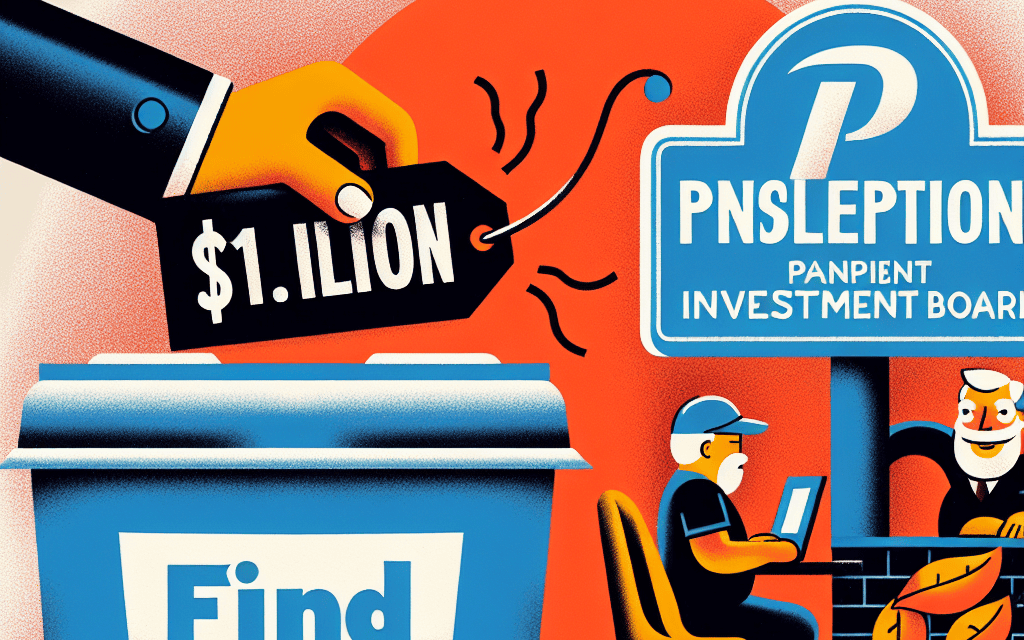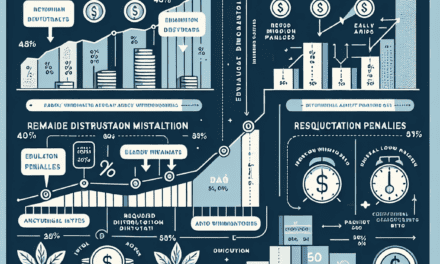“Swiggy’s Strategic Shift: IPO Valuation Adjusts to $11.3B with BlackRock and CPPIB Backing”
Introduction
Swiggy, the Indian food delivery giant, has reportedly adjusted its initial public offering (IPO) valuation to $11.3 billion, according to sources familiar with the matter. This move comes as the company secures significant investments from prominent global investors, including BlackRock and the Canada Pension Plan Investment Board (CPPIB). The revised valuation reflects Swiggy’s strategic response to current market conditions and investor sentiment, as it prepares to go public. The involvement of BlackRock and CPPIB underscores the confidence of major institutional investors in Swiggy’s growth potential and its position within the competitive food delivery sector. This development marks a pivotal moment for Swiggy as it navigates the complexities of the IPO landscape while continuing to expand its market presence and service offerings.
Swiggy’s Strategic Move: Lowering IPO Valuation to $11.3 Billion
Swiggy, one of India’s leading food delivery platforms, has reportedly adjusted its initial public offering (IPO) valuation to $11.3 billion, according to sources familiar with the matter. This strategic move comes as the company seeks to attract significant investments from prominent global investors, including BlackRock and the Canada Pension Plan Investment Board (CPPIB). By lowering its valuation, Swiggy aims to position itself more competitively in the market, especially in the face of fluctuating economic conditions and evolving investor expectations.
The decision to recalibrate the IPO valuation reflects Swiggy’s adaptive strategy in a dynamic financial landscape. In recent years, the global economic environment has been marked by volatility, with inflationary pressures and geopolitical tensions influencing investor sentiment. Consequently, companies preparing for public offerings have had to reassess their market positions and valuation strategies. Swiggy’s adjustment is indicative of a broader trend among tech companies, which are increasingly opting for more conservative valuations to ensure successful market entries.
Moreover, Swiggy’s decision to lower its valuation underscores its commitment to long-term growth and sustainability. By setting a more realistic valuation, the company is likely to attract a broader base of investors who are keen on stable and sustainable returns. This approach not only enhances investor confidence but also aligns with Swiggy’s strategic objectives of expanding its market presence and diversifying its service offerings. The involvement of heavyweight investors like BlackRock and CPPIB further validates Swiggy’s market potential and growth trajectory.
In addition to attracting investments, Swiggy’s revised valuation is expected to bolster its competitive edge in the Indian food delivery sector. The industry has witnessed intense competition, with players like Zomato and new entrants vying for market share. By positioning itself strategically through a well-calibrated IPO valuation, Swiggy can leverage its resources more effectively to innovate and enhance its service delivery. This move is likely to facilitate Swiggy’s efforts in expanding its footprint across India and exploring new business verticals, such as grocery delivery and cloud kitchens.
Furthermore, Swiggy’s strategic valuation adjustment is a testament to its proactive approach in navigating regulatory landscapes. As governments worldwide tighten regulations on tech companies, particularly those in the gig economy, Swiggy’s decision to adopt a conservative valuation could be seen as a preemptive measure to mitigate potential regulatory risks. By aligning its valuation with market realities, Swiggy demonstrates its readiness to comply with regulatory standards while maintaining its growth momentum.
In conclusion, Swiggy’s decision to lower its IPO valuation to $11.3 billion, with backing from esteemed investors like BlackRock and CPPIB, marks a significant milestone in its journey towards becoming a publicly traded company. This strategic move not only reflects Swiggy’s adaptability in a challenging economic environment but also underscores its commitment to sustainable growth and market leadership. As Swiggy prepares for its IPO, the company’s recalibrated valuation is poised to enhance its appeal to investors, strengthen its competitive position, and pave the way for future innovations in the food delivery industry. Through this calculated approach, Swiggy is well-positioned to capitalize on emerging opportunities and navigate the complexities of the global market landscape.
The Role of BlackRock and CPPIB in Swiggy’s IPO Valuation
Swiggy, one of India’s leading food delivery platforms, has reportedly adjusted its initial public offering (IPO) valuation to $11.3 billion, a move that has captured the attention of investors and market analysts alike. This decision comes amid a complex landscape of fluctuating market conditions and evolving investor expectations. Notably, two significant players, BlackRock and the Canada Pension Plan Investment Board (CPPIB), have emerged as pivotal figures in this valuation adjustment, underscoring their influential roles in Swiggy’s financial trajectory.
BlackRock, a global investment management corporation, is renowned for its substantial influence in the financial markets. Its involvement in Swiggy’s IPO process is indicative of the confidence it places in the company’s potential for growth and profitability. BlackRock’s investment strategies often focus on long-term value creation, and its participation in Swiggy’s IPO suggests a strategic alignment with the food delivery giant’s vision and business model. By investing in Swiggy, BlackRock not only provides financial backing but also lends its reputation and credibility, which can be instrumental in attracting other investors and enhancing market confidence.
Similarly, the Canada Pension Plan Investment Board, a major institutional investor, plays a crucial role in Swiggy’s valuation dynamics. CPPIB’s investment philosophy emphasizes sustainable growth and risk-adjusted returns, making its involvement in Swiggy’s IPO a testament to the company’s robust business fundamentals and future prospects. The backing of CPPIB is particularly significant given its rigorous investment criteria and focus on long-term value. This endorsement can serve as a catalyst for other institutional investors to consider Swiggy as a viable investment opportunity, thereby potentially broadening the company’s investor base.
The decision to lower the IPO valuation to $11.3 billion reflects a strategic recalibration by Swiggy, aimed at aligning with current market realities and investor sentiment. This adjustment may be seen as a pragmatic approach to ensure a successful IPO launch, balancing the need to attract investors with the desire to maximize capital raised. In this context, the involvement of BlackRock and CPPIB is not merely financial but also strategic, as their participation can help Swiggy navigate the complexities of the public market environment.
Moreover, the presence of such prominent investors can enhance Swiggy’s corporate governance and operational strategies. Both BlackRock and CPPIB are known for their active engagement with portfolio companies, often advocating for best practices in governance and sustainability. Their influence could drive Swiggy to adopt more robust governance frameworks, thereby improving transparency and accountability, which are critical factors for public companies.
In conclusion, the role of BlackRock and CPPIB in Swiggy’s IPO valuation is multifaceted, encompassing financial support, strategic guidance, and governance enhancement. Their involvement not only underscores the potential they see in Swiggy’s business model but also highlights the importance of strategic partnerships in navigating the IPO landscape. As Swiggy prepares to enter the public market, the backing of these influential investors could prove to be a decisive factor in its pursuit of long-term success and market leadership. This development serves as a reminder of the intricate interplay between valuation strategies and investor relations in the ever-evolving world of IPOs.
Analyzing Swiggy’s Decision to Adjust Its IPO Valuation
Swiggy, one of India’s leading food delivery platforms, has reportedly adjusted its initial public offering (IPO) valuation to $11.3 billion, a move that has captured the attention of investors and market analysts alike. This decision comes amid a complex landscape of fluctuating market conditions and evolving investor expectations. The revised valuation, which is notably lower than previous estimates, reflects Swiggy’s strategic response to the current economic climate and its efforts to align with investor sentiment. Notably, this adjustment coincides with significant investments from prominent entities such as BlackRock and the Canada Pension Plan Investment Board (CPPIB), underscoring the company’s continued appeal to major institutional investors.
The decision to lower the IPO valuation can be seen as a pragmatic approach by Swiggy to ensure a successful public offering. In recent months, the global financial markets have experienced heightened volatility, driven by factors such as inflationary pressures, geopolitical tensions, and shifting consumer behaviors. These dynamics have prompted many companies to reassess their market strategies, with Swiggy being no exception. By recalibrating its valuation, Swiggy aims to present a more attractive proposition to potential investors, thereby enhancing its chances of a favorable reception in the public markets.
Moreover, the involvement of BlackRock and CPPIB in Swiggy’s investment landscape adds a layer of credibility and confidence to the company’s prospects. BlackRock, as one of the world’s largest asset management firms, brings a wealth of expertise and a robust track record in identifying promising investment opportunities. Similarly, CPPIB’s participation signals a vote of confidence in Swiggy’s long-term growth potential, given the board’s reputation for strategic and prudent investment decisions. These endorsements are likely to bolster investor confidence, potentially offsetting any concerns arising from the adjusted valuation.
In addition to external market conditions, Swiggy’s decision may also be influenced by internal factors, such as its operational performance and competitive positioning. The food delivery sector in India is characterized by intense competition, with players like Zomato and new entrants vying for market share. Swiggy’s ability to differentiate itself through innovative offerings, efficient logistics, and customer-centric services will be crucial in maintaining its competitive edge. By setting a realistic IPO valuation, Swiggy can focus on strengthening its core operations and expanding its market presence without the added pressure of meeting overly ambitious financial targets.
Furthermore, the revised valuation aligns with a broader trend of tech companies adopting more conservative approaches to their public offerings. In recent years, several high-profile IPOs have faced challenges due to inflated valuations that did not align with market realities. Swiggy’s decision to adjust its valuation reflects a growing recognition among tech firms of the importance of sustainable growth and realistic market expectations. This shift towards more measured valuations is likely to foster a healthier investment environment, benefiting both companies and investors in the long run.
In conclusion, Swiggy’s decision to lower its IPO valuation to $11.3 billion represents a strategic move in response to a complex interplay of market dynamics and investor expectations. The involvement of reputable investors like BlackRock and CPPIB further underscores the company’s potential and credibility. As Swiggy prepares for its public debut, its focus on aligning valuation with market realities and strengthening its competitive position will be key determinants of its success in the public markets. This approach not only reflects Swiggy’s adaptability but also sets a precedent for other tech companies navigating the evolving landscape of public offerings.
Impact of Swiggy’s Valuation Change on the Indian Food Delivery Market

Swiggy, one of India’s leading food delivery platforms, has recently adjusted its initial public offering (IPO) valuation to $11.3 billion, a move that has garnered significant attention within the Indian food delivery market. This decision comes amid investments from prominent global investors such as BlackRock and the Canada Pension Plan Investment Board (CPPIB), signaling a strategic recalibration in response to evolving market dynamics. The implications of this valuation change are multifaceted, affecting not only Swiggy’s market positioning but also the broader competitive landscape of the Indian food delivery sector.
To begin with, Swiggy’s decision to lower its IPO valuation reflects a pragmatic approach to current market conditions. The global economic environment has been marked by volatility, with inflationary pressures and geopolitical tensions contributing to investor caution. By adjusting its valuation, Swiggy aims to align more closely with investor expectations, thereby enhancing its appeal to potential shareholders. This move is indicative of a broader trend among tech companies, which are increasingly opting for more conservative valuations to ensure successful public offerings.
Moreover, the involvement of heavyweight investors like BlackRock and CPPIB underscores the continued confidence in Swiggy’s long-term growth prospects. These investments not only provide Swiggy with the necessary capital to expand its operations but also serve as a vote of confidence in its business model and strategic direction. The backing of such reputable institutions is likely to bolster Swiggy’s credibility in the eyes of other investors, potentially facilitating a smoother transition to public markets.
In addition to its impact on Swiggy, the valuation adjustment is poised to influence the competitive dynamics within the Indian food delivery market. Swiggy’s primary competitor, Zomato, has already made its public debut, and the two companies have been engaged in a fierce battle for market share. By recalibrating its valuation, Swiggy may be positioning itself to better compete with Zomato, particularly in terms of pricing strategies and customer acquisition efforts. This could lead to intensified competition, with both companies striving to offer more attractive deals and services to consumers.
Furthermore, Swiggy’s valuation change may have ripple effects on smaller players in the market. As Swiggy and Zomato continue to dominate the landscape, smaller food delivery startups may find it increasingly challenging to carve out a niche. The heightened competition could lead to consolidation within the industry, as smaller companies seek partnerships or acquisitions to remain viable. This potential consolidation could ultimately result in a more streamlined market, with a few dominant players setting the tone for innovation and service delivery.
In conclusion, Swiggy’s decision to lower its IPO valuation to $11.3 billion, backed by investments from BlackRock and CPPIB, is a strategic move that reflects the current economic climate and investor sentiment. This adjustment not only positions Swiggy for a successful public offering but also has significant implications for the Indian food delivery market as a whole. As Swiggy and its competitors navigate this evolving landscape, the focus will likely remain on delivering value to consumers while adapting to the challenges and opportunities presented by a dynamic market environment.
Investor Reactions to Swiggy’s Revised IPO Valuation
Swiggy, the Indian food delivery giant, has recently adjusted its initial public offering (IPO) valuation to $11.3 billion, a move that has garnered significant attention from investors and market analysts alike. This revised valuation comes in the wake of strategic investments from prominent financial entities such as BlackRock and the Canada Pension Plan Investment Board (CPPIB). As the company prepares for its public debut, the decision to lower its valuation has sparked a range of reactions from investors, reflecting both optimism and caution in the current market environment.
To begin with, the decision to adjust the IPO valuation can be seen as a strategic maneuver by Swiggy to align more closely with current market conditions. In recent months, the global economic landscape has been marked by volatility, with inflationary pressures and geopolitical tensions contributing to a cautious investment climate. By setting a more conservative valuation, Swiggy aims to attract a broader base of investors who may have been hesitant to commit at a higher price point. This approach is not uncommon among companies seeking to ensure a successful IPO, as it can help mitigate the risk of an underwhelming market debut.
Moreover, the involvement of BlackRock and CPPIB in Swiggy’s pre-IPO funding round has been perceived as a vote of confidence in the company’s long-term growth prospects. These institutional investors are known for their rigorous due diligence processes and typically invest in companies with strong fundamentals and potential for sustainable growth. Their participation not only provides Swiggy with additional capital to fuel its expansion plans but also enhances its credibility in the eyes of other potential investors. Consequently, this development has been met with a positive reception from a segment of the investment community, who view it as an endorsement of Swiggy’s business model and market position.
However, it is important to note that not all investor reactions have been uniformly positive. Some market participants have expressed concerns about the implications of the revised valuation for Swiggy’s future performance. A lower valuation could be interpreted as a signal that the company is facing challenges in achieving its growth targets or that it is encountering increased competition in the food delivery sector. Additionally, there is a degree of skepticism regarding the sustainability of Swiggy’s business model, particularly in light of the intense competition from rivals such as Zomato and the ever-evolving regulatory landscape in India.
Despite these concerns, Swiggy’s management remains optimistic about the company’s prospects. They have emphasized their commitment to innovation and customer satisfaction, highlighting recent initiatives aimed at diversifying their service offerings and enhancing operational efficiency. By focusing on these strategic priorities, Swiggy aims to strengthen its market position and deliver long-term value to its shareholders.
In conclusion, Swiggy’s decision to lower its IPO valuation to $11.3 billion, coupled with investments from BlackRock and CPPIB, has elicited a mixed response from investors. While some view it as a prudent move in a challenging market environment, others remain cautious about the company’s future trajectory. As Swiggy prepares for its public debut, the coming months will be crucial in determining how these dynamics play out and whether the company can successfully navigate the complexities of the public markets. Ultimately, the outcome of Swiggy’s IPO will serve as a barometer for investor sentiment towards the broader food delivery industry and the Indian startup ecosystem.
Comparing Swiggy’s IPO Strategy with Competitors
Swiggy, the Indian food delivery giant, has recently adjusted its initial public offering (IPO) valuation to $11.3 billion, a move that has garnered significant attention in the financial world. This decision comes amid investments from prominent entities such as BlackRock and the Canada Pension Plan Investment Board (CPPIB). As Swiggy prepares to enter the public market, it is essential to compare its IPO strategy with those of its competitors to understand the broader implications for the industry.
Swiggy’s decision to lower its IPO valuation can be seen as a strategic maneuver in response to current market conditions. By setting a more conservative valuation, Swiggy aims to attract a broader range of investors, ensuring a successful IPO launch. This approach contrasts with the strategies employed by some of its competitors, who have opted for higher valuations in their public offerings. For instance, Zomato, another major player in the Indian food delivery sector, went public in 2021 with a valuation of approximately $13 billion. Zomato’s strategy was to capitalize on the heightened investor interest in tech-driven companies during a period of market exuberance.
However, the market landscape has shifted since Zomato’s IPO, with increased volatility and investor caution. Swiggy’s decision to adjust its valuation reflects an understanding of these changing dynamics and a desire to mitigate potential risks associated with overvaluation. By aligning its valuation more closely with current market realities, Swiggy positions itself as a prudent and adaptable company, qualities that are likely to resonate with investors seeking stability in uncertain times.
Moreover, Swiggy’s strategic partnerships with BlackRock and CPPIB underscore its commitment to securing long-term growth and stability. These investments not only provide Swiggy with additional capital but also lend credibility to its business model and future prospects. In contrast, some competitors have relied heavily on venture capital funding, which, while beneficial in the short term, can lead to increased pressure for rapid growth and profitability. Swiggy’s approach suggests a focus on sustainable expansion, supported by strategic alliances with established financial institutions.
Furthermore, Swiggy’s IPO strategy highlights its emphasis on innovation and diversification. The company has expanded beyond food delivery, venturing into grocery delivery and other on-demand services. This diversification strategy sets Swiggy apart from competitors who remain primarily focused on food delivery. By broadening its service offerings, Swiggy not only enhances its revenue streams but also strengthens its market position, making it a more attractive investment opportunity.
In addition, Swiggy’s focus on technology and data-driven decision-making is a key differentiator in its IPO strategy. The company has invested heavily in artificial intelligence and machine learning to optimize its operations and improve customer experience. This technological edge provides Swiggy with a competitive advantage, enabling it to adapt quickly to changing consumer preferences and market trends.
In conclusion, Swiggy’s decision to lower its IPO valuation to $11.3 billion, coupled with strategic investments from BlackRock and CPPIB, reflects a thoughtful and adaptive approach to entering the public market. By prioritizing sustainable growth, diversification, and technological innovation, Swiggy distinguishes itself from competitors and positions itself for long-term success. As the company prepares for its IPO, its strategy serves as a case study in balancing ambition with pragmatism in a rapidly evolving industry.
Future Prospects for Swiggy Post-IPO Valuation Adjustment
Swiggy, one of India’s leading food delivery platforms, has recently adjusted its initial public offering (IPO) valuation to $11.3 billion, a move that has garnered significant attention from investors and market analysts alike. This decision comes amid a broader recalibration of tech company valuations globally, as market conditions continue to evolve. Notably, Swiggy’s revised valuation has attracted investments from prominent entities such as BlackRock and the Canada Pension Plan Investment Board (CPPIB), underscoring the company’s potential for growth and resilience in a competitive market.
The decision to lower the IPO valuation reflects a strategic response to current market dynamics, where tech companies are facing increased scrutiny over their financial sustainability and growth prospects. By adjusting its valuation, Swiggy aims to present a more realistic and attractive proposition to potential investors, thereby enhancing its chances of a successful public offering. This move is particularly significant in the context of the Indian food delivery market, which is characterized by intense competition and rapid technological advancements.
Swiggy’s ability to secure investments from BlackRock and CPPIB is indicative of the confidence these major financial institutions have in the company’s long-term prospects. BlackRock, as one of the world’s largest asset management firms, brings a wealth of experience and resources that could prove invaluable to Swiggy as it navigates the complexities of going public. Similarly, CPPIB’s involvement signals a strong endorsement of Swiggy’s business model and growth strategy, given the pension fund’s rigorous investment criteria and focus on sustainable returns.
As Swiggy prepares for its IPO, the company is likely to focus on several key areas to bolster its market position and drive future growth. Firstly, expanding its service offerings beyond food delivery could open new revenue streams and enhance customer engagement. Swiggy has already made strides in this direction with initiatives like Swiggy Instamart, its quick-commerce grocery delivery service, which has shown promising growth. By diversifying its portfolio, Swiggy can mitigate risks associated with reliance on a single revenue source and capitalize on emerging consumer trends.
Moreover, technological innovation will play a crucial role in Swiggy’s post-IPO strategy. The company has consistently invested in enhancing its platform’s capabilities, leveraging artificial intelligence and machine learning to optimize delivery routes, improve customer experience, and streamline operations. Continued investment in technology will be essential for maintaining a competitive edge and achieving operational efficiencies that can drive profitability.
In addition to these strategic initiatives, Swiggy’s ability to adapt to regulatory changes and evolving consumer preferences will be critical to its success. The food delivery industry is subject to a complex regulatory landscape, with issues such as data privacy, labor laws, and environmental sustainability gaining prominence. Swiggy’s proactive approach to addressing these challenges, coupled with its commitment to corporate social responsibility, will be vital in building trust with stakeholders and ensuring long-term viability.
In conclusion, Swiggy’s decision to lower its IPO valuation to $11.3 billion, supported by investments from BlackRock and CPPIB, positions the company for a promising future. By focusing on diversification, technological innovation, and regulatory compliance, Swiggy can navigate the challenges of the public market and capitalize on growth opportunities in the dynamic food delivery sector. As the company embarks on this new chapter, its strategic initiatives and investor backing will be key determinants of its success in the years to come.
Q&A
1. **What is Swiggy’s new IPO valuation?**
Swiggy’s new IPO valuation is $11.3 billion.
2. **Which companies are investing in Swiggy?**
BlackRock and CPPIB (Canada Pension Plan Investment Board) are investing in Swiggy.
3. **Why did Swiggy lower its IPO valuation?**
The specific reasons for lowering the IPO valuation are not detailed, but it could be due to market conditions or strategic financial planning.
4. **What is Swiggy?**
Swiggy is an Indian online food delivery platform.
5. **What does IPO stand for?**
IPO stands for Initial Public Offering.
6. **What is the significance of BlackRock and CPPIB’s investment?**
The investment from BlackRock and CPPIB signifies strong institutional backing and confidence in Swiggy’s business model and growth prospects.
7. **How might the lowered valuation affect Swiggy’s IPO?**
A lowered valuation might make the IPO more attractive to investors by offering shares at a potentially undervalued price, but it could also reflect challenges in the market or company performance.
Conclusion
Swiggy’s decision to lower its IPO valuation to $11.3 billion, despite securing investments from major entities like BlackRock and the Canada Pension Plan Investment Board (CPPIB), reflects a strategic adjustment to align with current market conditions and investor expectations. This move may indicate a cautious approach to ensure a successful public offering amidst a volatile economic environment. By recalibrating its valuation, Swiggy aims to attract a broader range of investors and enhance its competitive positioning in the food delivery sector. The involvement of prominent investors like BlackRock and CPPIB underscores confidence in Swiggy’s long-term growth potential, despite the reduced valuation.





